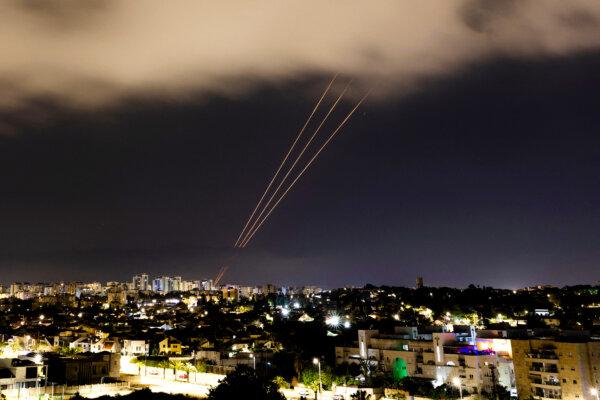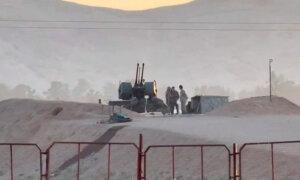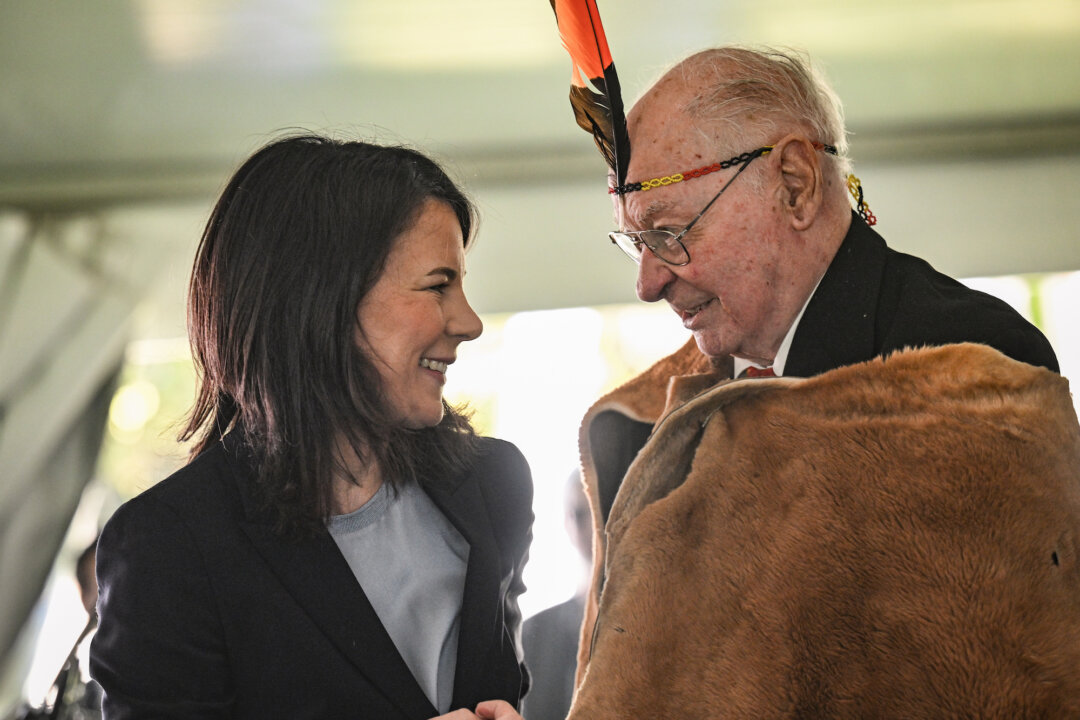The Iranian minister dismissed the idea that there had been an attack at all.
Iran’s Foreign Minister Hossein Amir-Abdollahian appeared to downplay an apparent Israeli retaliatory strike on the Iranian city of Isfahan, characterizing the drones used in the attack as akin to “children’s toys.”
In an interview with NBC News on April 20, Mr. Amir-Abdollahian said the drones took off from within Iran and flew “a few hundred meters” before being intercepted by Iran’s air defense system.
Explosions were reported near the Iranian city of Isfahan, a crucial hub in Iran’s nuclear program, in what is believed to be the result of an Israeli attack on April 19. Israel has not claimed responsibility for the attack.
Mr. Amir-Abdollahian said that it has not been proven that there was a connection between these explosions and Israel.
When asked about whether Iran had received warnings from other countries about the attack prior to its occurrence, the Iranian minister dismissed the idea that there had been an attack at all.
“What happened last night was not a strike,” he told the news outlet. “They are more like toys that our children play with. … It was not worth telling us before it happened.”
Mr. Amir-Abdollahian suggested that Iran will not retaliate but that its authorities will investigate the incident.
“If Israel wants to do another adventurism and act against the interest of Iran, our next response will be immediate and at the maximum level,” he said. “But if not, then we’re done. We’re concluded.”
U.S. Secretary of State Antony Blinken also downplayed the attack during a press conference on April 19 in Capri, Italy, where he met his Group of Seven (G-7) counterparts. He did not directly acknowledge the Israeli strike against Iran overnight, calling them “reported events.”
“I’m not going to speak to these reported events. All I can say is that for our part and for the entire G-7, our focus has been on de-escalation, on avoiding a larger conflict,” he told reporters.
 An anti-missile system operates after Iran launched drones and missiles toward Israel, as seen from Ashkelon, Israel, on April 14, 2024. (Amir Cohen/Reuters)
An anti-missile system operates after Iran launched drones and missiles toward Israel, as seen from Ashkelon, Israel, on April 14, 2024. (Amir Cohen/Reuters)Prior to the strike, Iran launched more than 300 munitions—including ballistic missiles, land attack cruise missiles, and one-way attack drones—toward Israeli territory on April 13. Iran said it was in response to what it claimed was an Israeli strike on its embassy compound in Syria in early April, although Israel never claimed responsibility for that strike.
Israel, with the support of the United States, the United Kingdom, France, and other partners, successfully intercepted 99 percent of the projectiles fired by Iran. There has been almost no damage to Israel’s infrastructure, as confirmed by both U.S. and Israeli officials.
Since Israel was able to successfully defeat Iran’s unprecedented assault on its territory, U.S. President Joe Biden and his team told the Israeli government not to pursue any further escalation.
Israel to Make Own Decisions About Defending Itself
On April 17, Israeli Prime Minister Benjamin Netanyahu said that his country would make its own decisions on how to protect itself, disregarding the calls for restraint from some Western countries.
“I thank our friends for their support in defense of Israel and I say this—support in both words and deeds. They also have all kinds of suggestions and advice, which I appreciate; however, I would also like to clarify—we will make our decisions ourselves.
“The state of Israel will do whatever is necessary to defend itself,” Mr. Netanyahu told the foreign ministers of Germany and the United Kingdom.
Iranian President Ebrahim Raisi has warned that any retaliation by Israel against Iran’s territory or interests, even “the slightest attack,” would be met with “a strong and fierce response.”
“That is the time when the supporters of the Zionist regime will find out that their hidden power will not be able to do anything,” Mr. Raisi said in an April 17 statement published on his official website.
During a Security Council meeting on April 14–held at the request of Israel after Iran’s attack—Israeli U.N. envoy Gilad Erdan urged the council to impose “all possible sanctions” on Iran “for the world’s sake.”
“The snooze button is no longer an option. The only option is to condemn Iran and utilize every means necessary to make them pay a heavy price for their horrible crimes,” he said.
T.J. Muscaro, Emel Akan, and Caden Pearson contributed to this report.














 English (US) ·
English (US) ·  Turkish (TR) ·
Turkish (TR) ·